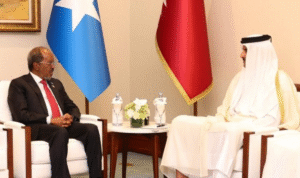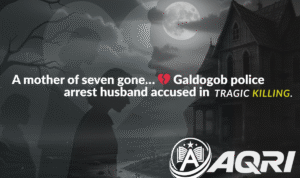Reporting from Somalia, the harrowing realities faced by children in conflict zones have been laid bare in a recent report by UNICEF, unveiling a troubling landscape that demands urgent global attention. The report highlights the distressing conditions endured by children in areas wracked by conflict, where basic human rights are often overshadowed by violence, displacement, and dire humanitarian needs.
According to the comprehensive study, the statistics paint a grave picture for the welfare of young lives in these volatile regions. Children are disproportionately affected, with many facing severe malnutrition, lack of access to education, and exposure to psychological trauma. In many instances, they are vulnerable to recruitment by armed groups, further perpetuating cycles of violence and instability.
UNICEF underscores a shocking figure: millions of children are living in dislocation, having been forced to flee their homes amidst the chaos. This not only disrupts their education and social development but also exposes them to further risks, including child labor and trafficking. The organization’s data reveal an urgent need for international interventions to ensure safe and secure environments for children to grow and learn.
The report emphasizes the pressing need for the protection of educational facilities, asserting that schools should be sanctuaries, not battlegrounds. In conflict zones, classrooms are often targeted or used for military purposes, depriving children of their fundamental right to education. UNICEF calls for increased efforts to safeguard educational institutions and provide alternatives where necessary, ensuring that all children have the chance to complete their education.
Moreover, the psychological scars inflicted on children in these environments cannot be overstated. Prolonged exposure to violence and instability leaves lasting impacts, manifesting in anxiety, depression, and post-traumatic stress disorder. UNICEF advocates for more robust mental health support systems to help children process their experiences and heal from the emotional wounds inflicted by conflict.
While the statistics are daunting, the report urges the international community not to view these children as mere numbers but as individuals with hopes and dreams deserving of a peaceful and prosperous future. It appeals for stronger policies and increased funding to aid in child protection, education, and mental health services in conflict-affected areas.
In response to the report, AQRI.net calls attention to the critical responsibility of governments, non-governmental organizations, and international bodies to collaborate and prioritize humanitarian efforts for children caught in the crossfire of conflict. As the world becomes increasingly aware of their plight, it is imperative to transform this awareness into tangible action, ensuring that the most vulnerable among us are protected and given the opportunities to thrive.
From the heart of Somalia, a country itself familiar with the ravages of conflict, the urgency of UNICEF’s call to action resonates profoundly. The time has come for a concerted global effort to safeguard the future of the world’s children and to rebuild hope in regions torn apart by war.







Comment